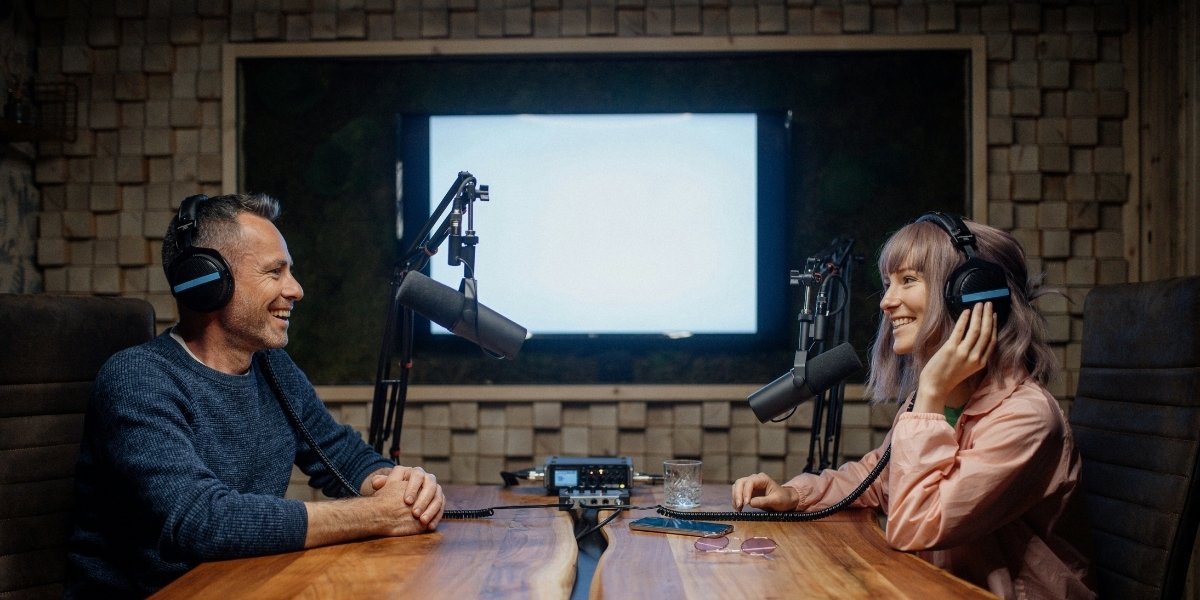The modern digital landscape is awash with content, from short-form videos to meticulously produced documentaries. Yet, amidst this diverse media ecosystem, the podcast interview has risen to prominence, demonstrating a unique ability to captivate and engage audiences. It’s more than just a passing trend; the success of this format underscores a fundamental truth about human connection and communication. The power of a well-executed podcast interview lies in its conversational nature, offering a level of authenticity and depth often missing in more scripted or visually driven content.
Read Also: Content Marketing: How to Engage Your Audience and Build Lasting Connections
This informal yet insightful approach fosters a profound sense of connection between hosts, guests, and listeners. Unlike traditional broadcasts, where time constraints and formal structures can limit genuine exchange, the podcast environment allows for extended, organic discussions. This open format creates an intimate listening experience, making conversational content a reigning force in the digital audio realm. It demonstrates that in a world craving connection, the raw, unpolished honesty of a candid discussion can indeed be king.
Why Are Podcast Interviews So Engaging for Audiences?
Podcast interviews possess an inherent engaging quality that draws in listeners, primarily due to their conversational and unscripted nature. Unlike highly polished or heavily edited media, an authentic interview feels less like a performance and more like eavesdropping on a private, insightful discussion. This sense of intimacy creates a powerful connection, as listeners feel they are truly part of the conversation, gaining direct access to the thoughts and experiences of the individuals speaking. The human voice, devoid of visual distractions, also allows the audience to fully focus on the nuances of dialogue, tone, and emotion.

Photo Credit: Unsplash.com
The long-form nature often associated with podcast interviews permits a level of depth rarely achieved in other media. Complex topics can be explored comprehensively, arguments can be fully developed, and stories can be told with rich detail. This provides a more satisfying and educational experience for listeners who are eager to delve beyond superficial headlines. The ability to pause, rewind, and re-listen also empowers the audience to engage with the content at their own pace, fostering deeper comprehension and retention of the insights shared during the interview.
How Do Podcast Interviews Build Authenticity and Trust?
One of the most significant strengths of the podcast interview lies in its unparalleled ability to foster authenticity and build trust with an audience. The informal setting, often recorded in casual environments rather than high-pressure studios, allows guests to relax and speak more candidly. This relaxed atmosphere often leads to unscripted moments, genuine laughter, thoughtful pauses, and spontaneous insights that reveal the true personality and expertise of the speaker. Listeners, increasingly weary of overly polished or corporate messaging, gravitate towards this raw honesty, perceiving it as more credible and relatable.
The vulnerability sometimes expressed during a candid interview can forge a powerful bond. When a guest shares personal anecdotes, challenges, or unfiltered opinions, it humanizes them, making them more approachable and trustworthy. This authenticity extends to the host as well, as their ability to steer the conversation empathetically and curiously enhances their credibility. Over time, this consistent delivery of genuine, unfiltered content cultivates a loyal listenership that trusts the information and perspectives shared on the podcast.
What Makes Conversational Content “King” in Podcasting?
Conversational content reigns supreme in the podcasting world because it mirrors natural human interaction, which is inherently compelling. People are hardwired for storytelling and dialogue, and a well-executed podcast interview taps directly into this innate preference. The back-and-forth exchange of ideas, the interplay of different perspectives, and the spontaneous tangents that arise in natural conversation make for dynamic and unpredictable listening, keeping audiences engaged far longer than a monologue or a heavily produced segment might.
This conversational style also makes complex information more digestible and relatable. Instead of being lectured, listeners feel as though they are part of a discussion, making abstract concepts more concrete through relatable examples and anecdotes shared during the interview. The inherent spontaneity means that every episode feels fresh and unique, avoiding the stale repetition that can plague more rigid formats. Ultimately, the organic flow of conversation fosters a deeper cognitive and emotional connection, solidifying its status as the most effective form of content in the audio medium.
How Do Podcast Interviews Serve as Powerful Networking Tools?
Beyond their appeal to listeners, podcast interviews serve as exceptionally powerful networking tools for both hosts and guests, creating mutually beneficial connections within industries and beyond. For hosts, inviting experts, thought leaders, and influential figures onto their show provides a direct and often privileged opportunity to engage in deep, meaningful conversations that might be impossible in other professional settings. This direct access allows hosts to expand their professional network, gain invaluable insights, and establish their own credibility within their niche through association with reputable guests.

Photo Credit: Unsplash.com
For guests, appearing on a podcast interview offers a unique platform for personal branding and thought leadership. It allows them to share their expertise, promote their work, and reach a new audience in an authentic and engaging way, often leading to new collaborations, business opportunities, or increased visibility. The informal nature of the discussion often builds a stronger rapport between the host and guest than a typical business meeting might, laying the groundwork for enduring professional relationships. This makes the podcast not just a content vehicle, but a robust engine for professional growth and connection.
What Is the Future of Conversational Content in Digital Media?
The future of conversational content, particularly in the form of the podcast interview, appears robust and continues to evolve within the broader digital media landscape. As audiences become increasingly discerning and seek more authentic interactions, the demand for genuine, unscripted dialogue is likely to grow. This trend may influence other media formats, encouraging more naturalistic conversations in video content, live streams, and even traditional broadcasting, as creators strive to replicate the intimacy and engagement that podcasts have mastered.
Read Also: Finding the Right Vlogging Camera: A Comprehensive Guide to Choosing the Lens for Your Content
Technological advancements are also set to further enhance the conversational content experience. Improved audio quality, AI-driven editing tools that streamline production without sacrificing spontaneity, and more interactive listening platforms could make podcast interviews even more accessible and immersive. As the digital space becomes more crowded, the ability of conversational content to cut through the noise by fostering real connection and delivering deep value will likely solidify its position, proving that the human voice, in genuine dialogue, will remain a king in the realm of digital media.








